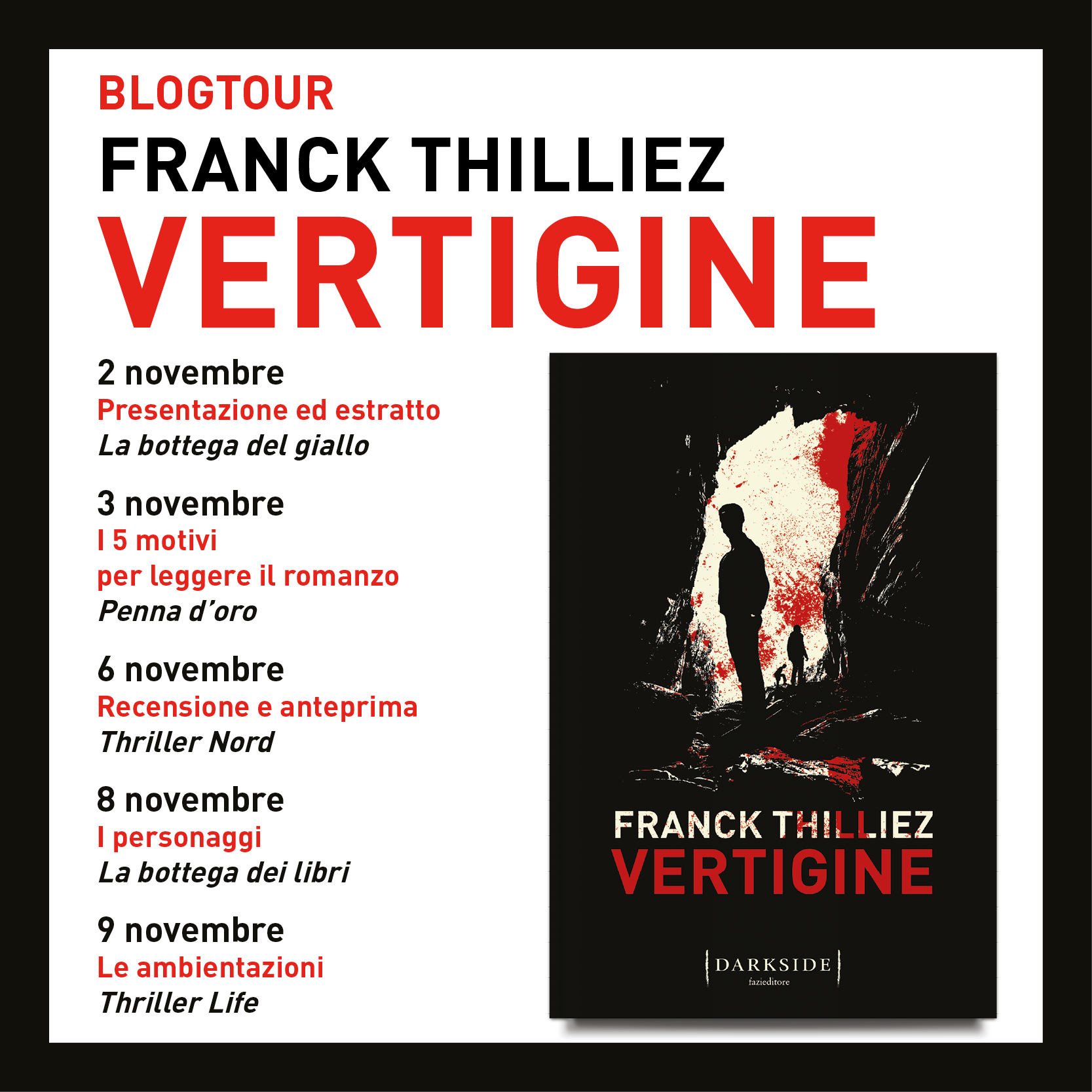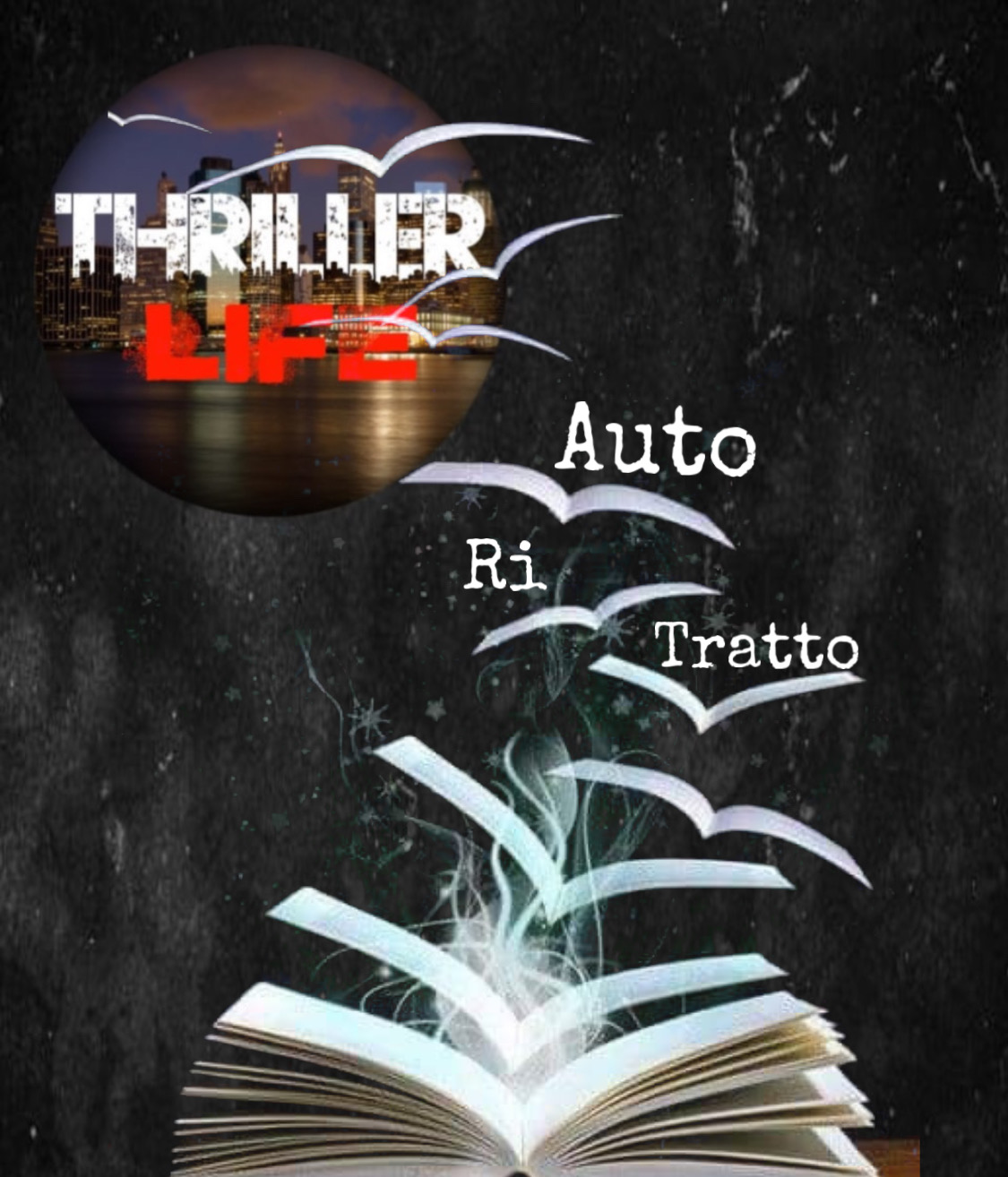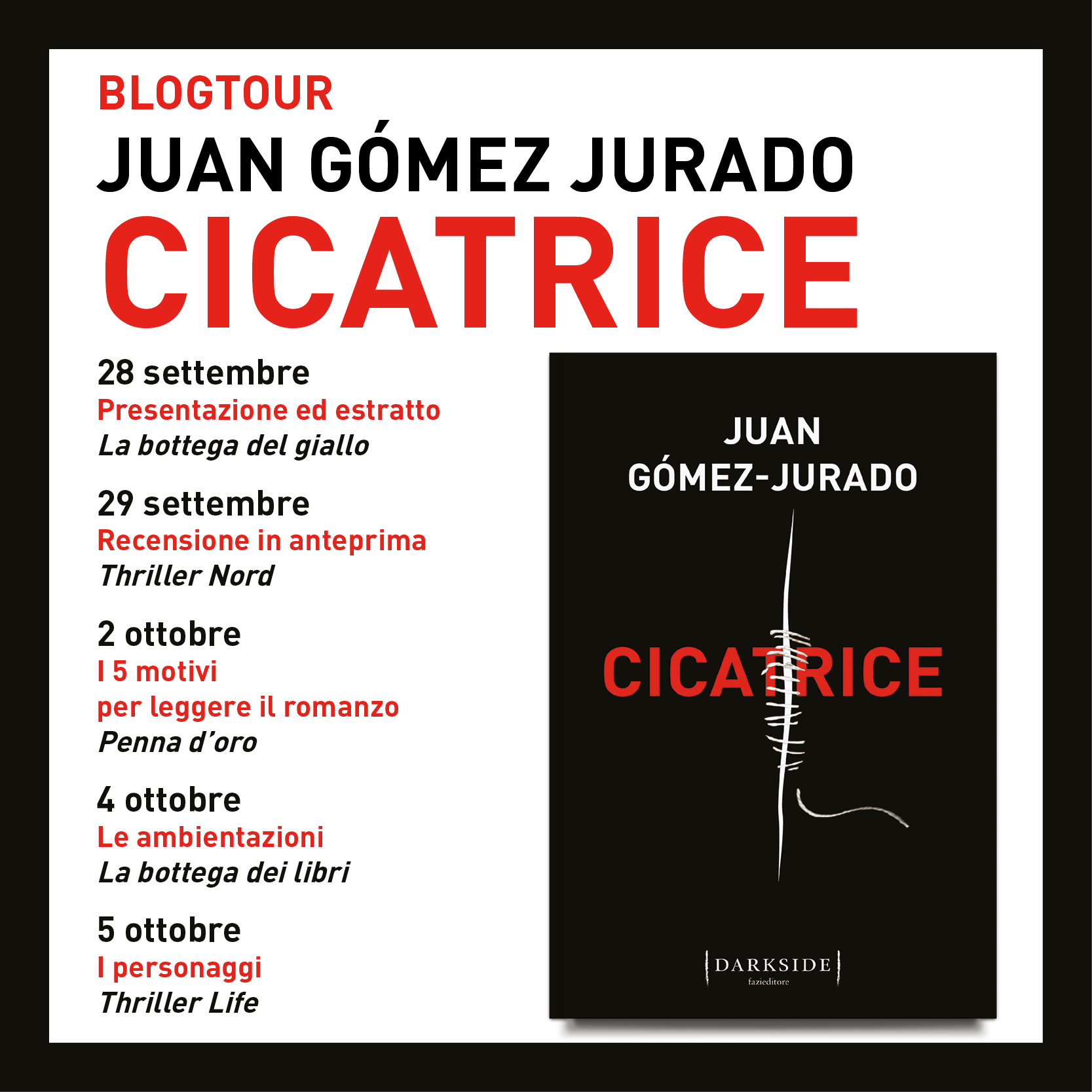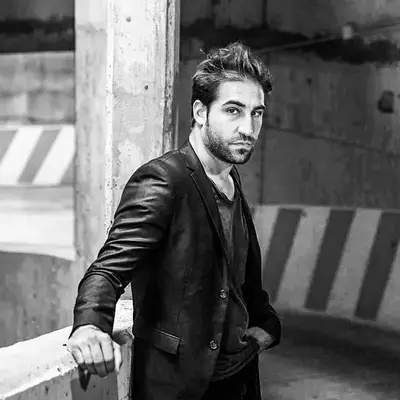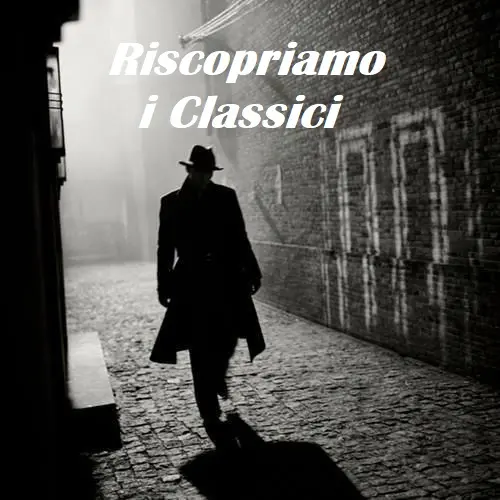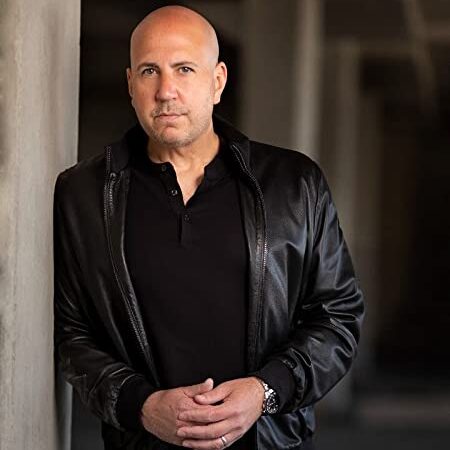
Alex Finlay
Alex Finlay, nom des plume di Anthony Franze, nato a Opelika, in Alabama, avvocato d’appello di Washington DC, che ha rappresentato clienti in più di 40 casi davanti alla Corte Suprema degli Stati Uniti.
Gli anni della formazione di Alex sono stati trascorsi in giro per il mondo, da un’isola tropicale del Pacifico a un piccolo villaggio del Regno Unito, fino a una remota regione dell’Estremo Oriente.
È stato proprio durante una vacanza a Tulum, in Messico, che Alex ha avuto l’ispirazione per scrivere Every Last Fear, che diventerà presto una serie televisiva.
The Night Shift – Il turno di notte – è il libro candidato ai Goodreads Choice del 2022 come miglior mystery e thriller.

I suoi lavori sono stati scelti da Indie Next, selezionati da LibraryReads, classificati come Amazon Editor’s Best Thriller e inseriti tra i migliori o più attesi thriller dell’anno da CNN, Newsweek, E!, BuzzFeed, Business Week, Goodreads, Parade, PopSugar, Scribd e Reader’s Digest.
I romanzi di Alex Finlay sono stati tradotti in diciotto lingue, e opzionati per il cinema e la televisione.
Il suo prossimo romanzo, What Have We Done, uscirà nel marzo 2023.
“Un romanzo – Il turno di notte – dal linguaggio scorrevole, con una lettura leggera, nonostante i tanti temi trattati, che ci apre lo sguardo sul mondo dei teenager nella sonnecchiosa provincia americana ”
Barbara Terenghi ha recensito il libro per Thriller Life QUI
Alex Finlay ha gentilmente risposto alle nostre domande
1. Sempre più spesso il mondo della narrativa vede scrittori che esercitano come prima professione l’avvocatura. È così anche per Alex Finlay, nom des plume di Anthony Franze, avvocato d’appello di Washington DC, che ha rappresentato clienti in più di 40 casi davanti alla Corte Suprema degli Stati Uniti. Scrivere e dare la possibilità di cercare e far avere giustizia ai tuoi personaggi di fantasia, bilancia in qualche modo l’ingiustizia che la realtà ti pone davanti nella quotidianità del tuo lavoro?
Penso che ci siano così tanti avvocati trasformati in scrittori perché gli avvocati – quelli bravi, comunque – sono narratori nel profondo.
Abbiamo il compito di conoscere le storie dei nostri clienti e di raccontarle in modo da persuadere un giudice o una giuria.
La parte divertente dello scrivere fiction è che, a differenza della vita reale, non siamo vincolati da quella fastidiosa cosa chiamata fatti.
2. Dopo l’enorme successo di Every last fear, non ancora tradotto in Italia, e Il turno di notte, appena pubblicato dalla casa editrice SEM, hai avuto la possibilità di avvicinarti ai lettori, agli appassionati di legal thriller e narrativa poliziesca. Quale comune denominatore unisce i tuoi lettori? Ritrovi in loro lo stesso senso di giustizia che anima la tua esperienza lavorativa?
Gli studi dimostrano che le persone che leggono regolarmente sono più intelligenti ed empatiche della maggior parte delle persone.
Ho scoperto che è così anche per i miei lettori.
Si avvicinano ai miei libri per una serie di motivi: evasione, desiderio di camminare nei panni di qualcun altro, o semplicemente per rendere più breve un viaggio in aereo o più rilassante un soggiorno in spiaggia.
Per me non è importante il motivo per cui hanno scelto i miei libri, mi sento solo privilegiato che mi abbiano affidato molte ore della loro vita.
3. Il turno di notte affronta la tematica del “presunto colpevole”, o meglio la condanna di una persona che in realtà non ha commesso il reato; tasto dolente del mondo giudiziario di tutto il mondo, soprattutto degli States. Negli Stati Uniti la polizia usa stratagemmi che inducono i soggetti ad autocondannarsi: questo metodo coercitorio provoca anche un effetto boomerang, screditando tutte le forze dell’ordine e istillando sfiducia nella giustizia. Come avvocato d’appello quanto può il tuo lavoro contro questo sistema fallace?
Ho una pratica legale diversificata, dalle controversie aziendali da miliardi di dollari alle questioni di interesse pubblico.
Ho cercato di fare la mia parte per promuovere la riforma della giustizia penale, anche contestando il sistema della pena di morte, lottando per il diritto all’assistenza legale dei poveri e cercando di far luce sulle pratiche di interrogatorio della polizia che hanno tragicamente portato a molte false confessioni.
La buona notizia è che credo ci siano molti professionisti della giustizia penale che vogliono giustizia e riforme.
Gli Stati Uniti hanno molti problemi con il nostro sistema, ma anche molte brave persone che cercano di migliorare.
4. Nel tuo romanzo Il turno di notte, la generazione degli Anni Novanta ha ritrovato quella gestualità ormai perduta dei video-tape, le note dei gruppi rock che diventavano iconici con tanto lavoro e tanta gavetta, l’attesa gioiosa dei nuovi CD. In queste pagine c’è lo specchio di un’epoca che non riflette più il presente, divenuto rapido, smart, multitasking; si è vanificata la valenza della parola pazienza. Cosa è rimasto di quegli anni e cosa invece per fortuna non c’è più?
Cosa è sopravvissuto?
Penso che tutti noi vogliamo ancora le stesse cose fondamentali: amore, risate e salute. Inoltre, nonostante tutte le cose che competono per la nostra attenzione (social media, Netflix, ecc.), i libri e la lettura rimangono popolari.
Per quanto riguarda ciò che non c’è più, credo che i nostri margini di attenzione siano molto più brevi.
E passiamo troppo tempo sui nostri telefoni, spesso coltivando versioni irrealistiche della nostra vita sui social media.
Ma i tempi cambiano, è così e non tutti i cambiamenti sono negativi.
5. La scelta di ricorrere ad un Cold case nell’intrecciare la trama di Il turno di notte è stata vincente. Come è nata l’idea di questa storia?
Mi trovavo in una zona di Washington, chiamata Georgetown, e mi fermai in una caffetteria.
All’interno, appeso al muro, c’era un monumento commemorativo di un gruppo di giovani impiegati che erano stati uccisi vent’anni prima mentre facevano il turno di notte.
Il caso è rimasto irrisolto per diversi anni prima di essere risolto.
Mi ha fatto pensare a questi tipi di crimini particolarmente insidiosi e sono tornato a casa per scrivere l’incipit del libro.
6. Il mondo degli adolescenti, con i loro turbamenti e i loro sogni, sembra quello che maggiormente preferisci raccontare. La scelta è empatica o funzionale alla trama?
Tutti noi abbiamo un bel ricordo di quel periodo della nostra vita in cui tutto è ancora davanti a noi e una possibilità.
È divertente tornare indietro e scrivere con quella meraviglia.
Inoltre, ho tre figli (ora di 24, 21 e 18 anni), che mi hanno fornito molto materiale quando erano adolescenti dispettosi.
Infine, mia moglie dice che per molti aspetti sono ancora un sedicenne…
7. C’è un’argomento che purtroppo si accosta facilmente quando si parla di giovani ragazzi e di studenti: le stragi che avvengono nelle scuole e nei licei degli States. Quale è la tua posizione, da padre con figli che frequentano le scuole, sulla facile reperibilità delle armi?
Mi fa molto arrabbiare che i nostri leader politici non prendano provvedimenti ragionevoli per arginare questo problema tipicamente americano.
La scuola dovrebbe essere un luogo sicuro e l’ampia disponibilità di armi sfida il buon senso.
Oltre a preoccuparmi per i miei figli quando andavano a scuola, mia moglie è stata insegnante per molti anni, e resto sconcertato dal fatto che bambini e insegnanti debbano affrontare la paura e il pericolo.
8. Sarah Keller è la protagonista del suo primo thriller e ritorna anche in Il turno di notte. È un personaggio che avrà vita lunga e ritroveremo nei suoi prossimi romanzi e magari in futuro potremmo vedere anche in una serie Tv?
La Keller è stata la preferita dei lettori.
Credo che questo sia dovuto al fatto che è bravissima nel suo lavoro e che è una persona gentile ed empatica in un matrimonio solidale.
Every Last Fear è in fase di sviluppo per una breve serie televisiva , e lei sarà una parte importante di ogni show.
Non è presente nel mio prossimo romanzo, What Have We Done, ma sono sicuro che un giorno la riporterò in scena.
9. Spulciando nel web ho notato che a Luglio sarai presente in Italia a Recanati per il Leopardi Writing Conference. I corsi di scrittura hanno avuto un ruolo importante nella tua carriera da scrittore; ci racconti come è cominciata la tua avventura nel mondo della narrativa?
Ho partecipato alla conferenza di Leopardi due volte e non dimenticherò mai nessuno dei due viaggi: un ambiente bellissimo, abitanti del luogo gentili e generosi e la possibilità di lavorare con alcuni grandi scrittori.
Spero di tornare in futuro.
Per quanto riguarda il mio viaggio nella narrativa, il mio è iniziato come quello di tanti altri: scrivendo da solo a tarda notte, senza sapere se qualcuno avrebbe mai voluto leggere, e tanto meno pagare, le mie storie.
È stato un viaggio lungo, pieno di alti e bassi, ma gratificante.
10. Ogni bravo scrittore è prima di tutto un ottimo lettore. Quali sono stati i tuoi maestri del crimine? Qual è il titolo imprescindibile per ogni appassionato thrillerista?
È proprio così.
Quando i nuovi scrittori mi chiedono consigli, dico loro che non si può essere un grande scrittore se non si è un grande lettore.
Ho troppi scrittori preferiti da elencare, ma posso dirvi quali ho letto di recente: Outliers di Malcolm Gladwell; Look Closer di David Ellis; Tomorrow and Tomorrow and Tomorrow di Gabrielle Zevin; e One Step Too Far di Lisa Gardner.
Potrei continuare.
11. Passando alle domande più leggere, vuoi raccontarti a noi con tre aggettivi che ti contraddistinguono?
Determinato, allegro e fortunato.
12. Se dovessi scegliere tre cose di cui non potresti mai fare a meno, ovviamente escludendo la scrittura, quali sarebbero?
Caffè, vodka e la mia famiglia.
L’ordine di priorità dipende dal tipo di settimana che sto vivendo.
13. Prima di salutarci quale messaggio o augurio ti piacerebbe lasciare ai nostri lettori?
Grazie a voi lettori per aver dato una possibilità a uno scrittore americano.
Essere pubblicato in Italia, un Paese che amo e che ha una cultura così ricca, è stato un punto culminante nella mia carriera di scrittore.
Thriller Life ringrazia Alex Finlay per la disponibilità e la gentilezza.
a cura di Barbara Terenghi e Patty Pici

L’intervista ad Alex Finlay in lingua originale
1. Increasingly, the world of fiction is seeing writers who practice law as their first profession. Such is the case for Alex Finlay, nom des plume of Anthony Franze, a Washington DC appellate lawyer who has represented clients in more than 40 cases before the U.S. Supreme Court. Does writing and empowering your fictional characters to seek and get justice somehow balance the injustice that reality puts in front of you in the daily grind of your work?
I think there are so many lawyers-turned-authors because lawyers—the good ones, anyway—are storytellers at heart. We’re tasked with learning our clients’ stories and telling them in a way to persuade a judge or jury. The fun part about writing fiction is that, unlike real life, we’re not constrained by that pesky thing called the facts.
2. After the huge success of Every Last Fear, which has not yet been translated into Italian, and The Night Shift, which has just been published by SEM publishing house, you had the chance to approach readers, fans of legal thrillers and detective fiction. What common denominator unites your readers Alex Finlay? Do you find in them the same sense of justice that animates your work experience?
Studies show that people who read regularly are smarter and more empathetic than most people. I’ve found that’s the case with my readers.
They come to my books for a variety of reasons: escapism, wanting the chance to walk in someone else’s shoes, or simply to make an airplane ride shorter or stay on the beach more relaxing. It doesn’t matter to me why they’ve chosen my books, I just feel privileged they’ve trusted me with many hours of their lives.
3. Night Shift deals with the issue of the “alleged offender” or rather the punishment of a person who did not actually commit the crime; a sore point in the judicial world all over the world, especially in the States. In the United States, the police use ploys that induce subjects to convict themselves: this coercive method also causes a boomerang effect, discrediting all law enforcement agencies and instilling distrust of justice. As an appellate lawyer, how much can your work counter this failed system?
I have a diverse law practice—from billion-dollar corporate disputes to matters of public interest. I’ve tried to do my part in fostering criminal justice reform, including challenging the death penalty system, fighting for the right to counsel for the poor, and trying to shine a light on police interrogation practices that have tragically resulted in many false confessions. The good news is that I think there are many criminal justice professionals who want justice and reform. The U.S. has lots of problems with our system, but also lots of good people trying to do better.
4. In your novel The Night Shift, the generation of the 1990s rediscovered that now-lost gesture of video-tapes, the sound bites of rock bands that became iconic with a lot of hard work and a lot of apprenticeship, the joyful awaiting of new CDs. In these pages is a mirror of an era that no longer reflects the present, which has become fast, smart, multitasking; the value of the word patience has been vanished. What survived of those years and what, fortunately, is no longer there?
What’s survived? I think we all still want the same basic things: love, laughter, and health. Also, despite all the things competing for our attention (social media, Netflix, etc.), books and reading remain popular. As for what’s no longer there, I think our attention spans are much shorter. And we spend too much time on our phones, often cultivating unrealistic versions of our lives on social media. But times change, that’s just the way it is, and not all change is bad.
5. The choice to use a cold case in weaving the plot of The Night Shift was a winning one. How did the idea for this story come about ?
I was in an area of Washington, DC called Georgetown and stopped at a coffee shop. Inside, mounted on the wall, was a memorial to a group of young employees who had been murdered twenty years ago while working the night shift. The case was cold for several years before it was solved. It started me thinking about these particularly insidious types of crimes and I went home and wrote the opening to the book.
6. The world of teenagers, with their upsets and dreams, seems to be the one you most prefer to narrate. Is the choice empathetic or functional to the plot ?
We all have fond memories of that time in our lives where everything is still ahead of us and a possibility. It’s fun to go back and write with that wonderment. Also, I have three children (now 24, 21, and 18), and they provided me lots of material when they were mischievous teens. Last, my wife says I’m still a 16 year old in many ways…
7. There is a topic that unfortunately is easily approached when talking about young boys and students: the massacres that occur in schools and high schools in the States. What is your position, as a father with children attending schools, on the easy availability of guns?
It makes me very angry that our political leaders don’t take reasonable steps to stem this uniquely American problem. School should be a safe place, and the wide availability of guns defies common sense. Beyond worrying about my kids when they were in school, my wife was a school teacher for many years, and I remain appalled that kids and teachers have to deal with the fear and danger.
8. Sarah Keller is the protagonist of your first thriller Alex Finlay and she also returns in The Night Shift. Is this a character that will have a long life and we will find again in your upcoming novels and maybe in the future we might see in a TV series?
Keller has been a reader favorite. I think that’s because she is great at her job and a kind, empathetic person in a supportive marriage. Every Last Fear is in development for a limited television series, and she will be a big part of any show. She is not in my next novel, What Have We Done, but I’m sure I’ll bring her back some day.
9. Poking around the web, I noticed that in July you will be in Italy in Recanati for the Leopardi Writing Conference. Writing courses have played an important role in your writing career; can you tell us how your adventure into the world of fiction began?
I have participated in the Leopardi conference twice and I will never forget either trip: a beautiful setting, kind and generous local residents, and the chance to work with some great writers. I hope to return in the future.
As for my journey into fiction, mine began like so many: typing alone late at night unsure if anyone would ever want to read, much less pay for, my stories. It was a long journey, filled with many highs and lows, but a gratifying one.
10 Every good writer is first and foremost a good reader. What have been your crime masters? What is the must-have title for every passionate thriller reader?
That is exactly right. When new writers ask me for advice, I tell them you can’t be a great writer if you’re not a great reader.
I have too many favorite writers to list, but I can tell you what I’ve read recently: Outliers by Malcolm Gladwell; Look Closer by David Ellis; Tomorrow and Tomorrow and Tomorrow by Gabrielle Zevin; and One Step Too Far by Lisa Gardner. I could go on.
11. Moving on to lighter questions, would you like to tell us about yourself with three adjectives that set you apart?
Determined, cheerful, and lucky.
12. Excluding writing, what would be the three things you couldn’t do without?
Coffee, vodka, and my family. The order of priority depends on the kind of week I’m having.
13. Before we say goodbye, would you have a wish or message to leave our readers?
Thank you readers for giving a U.S. writer a chance. Getting published in Italy—a country I love, which has such a rich culture—has been a high point in my writing career.
Thank you Alex Finlay for your kindness 🙂
Thank you for the thoughtful and insightful questions. Alex Finlay
_______________

